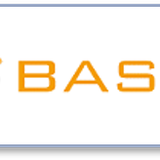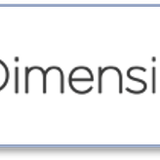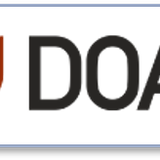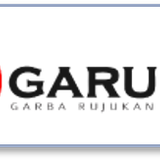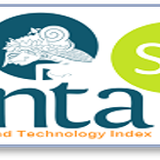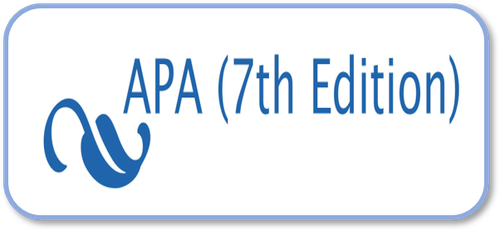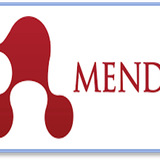The Impact of Social Media on Employee Work Performance with Trust as a Mediation Variable
DOI:
https://doi.org/10.24912/jm.v24i2.649Abstract
Can the use of social media which is currently a trend in the community, have an influence on improving employee performance? This is what makes the research carried out. The analysis technique used is the Structural Equation Model (SEM) method with AMOS version 23. The sample consisted of 102 people who were employees in various types of private companies in DKI Jakarta. The results showed that the more social media is used to communicate with colleagues in completing work, the more trust among employee increases. Also the more social media is used to communicate with colleagues in completing work, the more improves employee work performance. But trust can not influence performance of employee, and trust is not a variable that mediates between social media and employee performance.
References
Alavi, M., and Leidner, D. (2001). “Review: Knowledge Management & Knowledge Management Systems: Conceptual Foundations and Research Issues”. MIS Quaterly, 25(1): 107-136. DOI: 10.2307/3250961.
Andres, H.P., and Zmud, R.W. (2002). “A Contingency Approach to Software Project Coordination”. Journal of Management Information System. Psychological Bulletin, 103(3): 411-423. http://dx.doi.org/10.1080/07421222.2002.11045695.
Anthony, R.N.M., and Govindarajan, M.V. (2001) Management Control System. 10th Edition, Chicago, Illinois: Richard D. Irwin, Inc.
Bennett, E.E. (2014). “How An Intranet Provides Opportunities for Learning Organizational Culture: Implications for Virtual HRD”. Advanced In Developing Human Resources, 16(3): 296-319. DOI: 10.1177/1523422314532.
Cao, X., Guo, X., Vogel, D., and Zhang, X. (2016). “Exploring The influence of social media on employee of work Performance”. Internet Research, 25(2): 529-545. https://doi.org/10.1108/IntR-11-2014-0299.
Chang, T.S., and Hsiao, W.H. (2014). “Time Spent on social networking sites understanding user behavior and social capital”. Systems Research and Behavioral Sciences, 31(1): 102-114. DOI: 10.1002/sres.2169.
Chen, C., and Hung, S. (2010). “To Give or To Receive? Factors’ Influencing Members Knowledge Sharing and Community Promotion in Professional Virtual Communities”. Information and Management, 47(4): 226-236. DOI: 10.1016/j.im.2010.03.001.
De Jong, B.A., Dirks, K.T., and Gillespie, N. (2016). “Trust and Team Performance: A Meta Analysis of Main Effect, Moderators, Covariates”. Journal of Applied Psychology, 101(8): 1134-1150.
DiMicco, J., Millen, D.R., Geyer, W., Dugan, C., Brownholtz, B., and Muller, M. (2008). “Motivations for social networking at work”. Proceedings of The 2008 ACM Conference on Computer Supportive Cooperative Work (CSCW 08), New York: 711-720.
Fang, Y., and Chiu, C. (2010). “In Justice We Trust: Exploring Knowledge Sharing Continuance Intentions in Virtual Communities of Practice”. Computers in Human Behaviour, 26(2): 235-246. DOI: 10.1016/j.chb.2009.09.005.
Ferdinand, A. (2002). Structural Equation Modelling dalam Penelititan Manajemen. Badan Penerbit UNDIP, Semarang.
Hair, J.F., Anderson, R. E., and Black, W. C. (2014). Multivariate Data Analysis, Upper Saddle River, New Jersey: Prentice Hall Inc.
Hariandja, M.T.E. (2004). Manajemen Sumber Daya Manusia, Pengadaan, Pengembangan, Pengkompensasian, dan Peningkatan Produktivitas Pegawai. PT. Grasindo, Jakarta.
Halabi, C.E., and Lussier, R.N. (2014). “A Model for Predicting a Small Firm Performance”. Journal of Small Business and Enterprise Development. 21(1):4-25. DOI: 10.1108/JSBED-10-2013-0141.
Jackson, A., Yates, J.A., and Orlikowski, W. (2007). “Corporate blogging: building community through persistent digital talk”. Proceeding of the 40th Hawaii International Conference on Systems Sciences, Hawai, January 3-6.
Kankanhalli, A., Tan, B., and Wei, K. (2005). “Contributing Knowledge to Electronic Knowledge Repositories: An Empirical Investigation”. MIS Quaterly, 29(1); 113-143. DOI: 10.2307/25148670.
Kuvaas, B. (2006). “Work Performance, Affective Commitment, and Work Motivation: The Roles of Pay Administration and Pay Level”. Journal of Organizational Behavior, 27(3): 365-385. http://www.jstor.org/stable/4093933.
Kampkötter, P., Mohrenweiser, J., Sliwka, D. Steffes, S., and Wolter, S. (2016). “Measuring The Use of Human Resources Practices and Employee Attutudes: The Linked Personnel Panel”. Evidence-Based HRM: A Global Forum of Empirical Scholarship, 4(2): 94-115.
Levin, D.Z., and Cross, R. (2004). “The Strength of Weak Ties You Can Trust: The Mediating Role of Trust in Effective Knowledge Transfer”. Management Science, 50(11): 1477-1490. https://doi.org/10.1287/mnsc.1030.0136.
Leidner, D. Koch, H., and Gonzales, E. (2010). “Assimilating Generation Y IT New Hires Into USAA’S Workforce: The Role of Enterprise 2.0 System”. MIS Quaterly Executive, 9(4): 229-242.
Lin, C. (2007). “To share or not to share: modeling tacit knowledge sharing, its mediators & antecedents”. Journal of Business Ethics, 70(4): 411-428. DOI: 10.1007/s10551-006-9119-0
McAfee, A.P. (2006). “Enterprise 2.0: the dawn of emergent collaboration”. Engineering Management Review, 34(3): 38-38. DOI: 10.1109/emr.2006.261380.
North, M. (2010). “An Evaluation of Employees Attitudes toward Social Networking In The Workplace”. Issues In Information Systems, 11(1): 192-197.
Nilasari, B.M., Jasfar, F., and Wahyudi, A.S. (2019) “The Effect of Interactivity, Cost Effectiveness, and Compatibility on the Use of Social Media and its Implications for Organizational Performance”. American Resaerch Journal of Business Management.
(1):1-17.
Offong, G., O., and Costello, J. (2017). “Enterprise Social Media Impact on Human Resources Practices”. Evidence-Based HRM: a Global Forum for Empirical Scholarship, 5(3): 328-343. https://doi.org/10.1108/EBHRM-06-2017-0031.
Pride, W., Hudges, R. J., and Kapoor, J. R. (2017) Foundation of Business. 5th edition, Cengage Learning.
Parveen, F., Jaafar, N.I., and Ainin, S. (2016). “Social media’s impact on organizational performance and entrepreneurial orientation in organizations”. Management Decision, 54 (9): 2208-2234.
Sekaran, U., and Bougie, R. (2010) Research Methods for Business: Skill Building Approach. India: John Wiley & Sons Ltd. Publication.
Stasser, G., and Titus, W. (1985). “Pooling of Unshared Information Ingroup Decision Making: Biased Information Sampling During Discussion”. Journal of Personality and Social Psychology, 48(6): 1467-1478.
Smith, S.J. (2009). “The creative uses of Facebook as a tool for artistic collaboration”. Proceedings of the electronic visualization and the arts (EVA 09). British Informatics Society Limited, London: 181-191. https://www.scienceopen.com/document_file/d3c4c537-04f7-46de-8580-66e7633a4feb/ScienceOpen/181_Smith.pdf.
Skinner, D., Dietz, G., and Weibel, A. (2014). “The Dark Side of Trust: When Trust Become A Poisoned Chalice”, Organization, 21(2):206224.
Tika, P.M. (2010). Budaya Organisasi dan Peningkatan Kinerja. Perusahaan, Bumi Aksara, Jakarta.
Valenzuela, S., Park, N., and Kee, K.F. (2009). “Is there social capital in a social network site? Facebook use and college students’ life satisfaction, trust, & participation”. Journal of Computer-Mediated Communication, 14(4): 875-901). DOI: 10.1111/j.1083-6101.2009.01474.x.
Weibel, A., Den Hartog, D.N., Gillespie, N., Searle, R., Six, F., and Skinner, D. (2016). “How Do Control Impact Employee Trust in The Employer?” Human Resources Management, 55(3): 437-462.
Wasko, M. and Faraj, S. (2005). “Why Should I Share? Examining Social Capital and Knowledge Contribution in Electronic Network of Practice”. MIS Quaterly, 29(1):35-57.
Yu, L., Chao, X., Liu, Z., and Wang J. (2018). “Exploring The Effect of Social Media Overload on Job Performance”. Information Technology and People, 31(6): 1091-1112.
Downloads
Published
How to Cite
Issue
Section
License
Copyright (c) 2020 Jurnal Manajemen

This work is licensed under a Creative Commons Attribution-NonCommercial-ShareAlike 4.0 International License.
This journal provides immediate open access to its content on the principle that making research freely available to the public supports a greater global exchange of knowledge.

This work is licensed under a Creative Commons Attribution-NonCommercial-ShareAlike 4.0 International License






